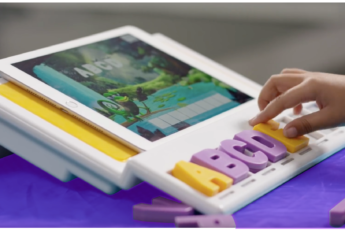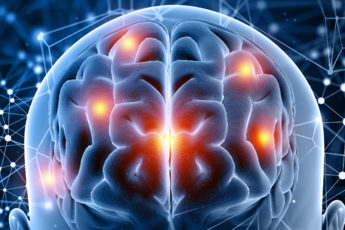Square Panda Decodes The Cognitive Workings Of A Young Brain
Ever imagined the preschoolers surpassing all the milestones and reaching their ultimate potential? Young brains requires milestones to develop their base foundation skills.
Teachers, Parents, and Caregivers, always wonder about how to encourage the child by directing them in the right path. Now you can trigger the accurate emotions, set them on course for effective and engaging learning. Evolve their cognition’s easily.
“Cognitive Development pertains improving the skills in terms of understanding the concepts, perception, learning, thinking and processing information in the brain.”
In simpler terms, Cognition refers to thinking and memory processes while cognitive development refers to long-term changes in these processes. Here’s a better explanation by Piaget in his popular Psychological theory.
According to Jean Piaget’s (a renowned Swiss Psychologist) Theory of Cognitive Development, the children move through four different stages of brain development. The theory focuses on understanding, how young brains acquire knowledge and the nature of intelligence. As children take an active role in the learning process, make constant observations, and perform experiments their skills grows. Infact, interacting with other people adds more knowledge. He believed, cognitive development is a process which happens due to biological maturation.
Piaget’s Period Of Cognitive Development

Everyone knows, the preschool years are the most exciting and enthusiastic as a child is immersed in a highly social world. These social and cultural influences are providing the context and building the cognitive growth foundation. So, how can kids’ keep every detail in mind and solve problems? When they read a book, speak and watch a video, their young brains hold onto everything as processed info. The psychologists calls it the working memory. It underpins the child’s ability to learn. Working memory generates proper guidance to enhance the child’s decision-making process and behavior.
Yes, children’s thinking ability is tremendously developing by leaps and bounds. Especially at the age of three-five, every child’s brain begins to grow cognitively, and they require teachers to provide support and guidelines. Mentoring them with educational tools will engage the preschoolers’ thinking abilities and give a boundless exposure to their potentials.
Square Panda inspires early learning by triggering the correct cognitive cords. There are various hallmarks in the pedagogy, which teachers must use to encourage and educate the early learners.
Here are some hallmarks on how to train the preschoolers through the lens of cognitive development.
1.Simple Reasoning and Problem-solving-
Young brains have thousands of questions and need explanations on how things work around. Teachers should pose and read aloud some thought-provoking questions for preschoolers to understand the natural causes of any phenomena, this will stimulate their cognitive abilities. Reasoning and problem solving is a technique which teachers can use to help students understand how and why things work.
For instance, Teachers can evolve their students curiosity levels by reading the different “how to” children books or guides.

2.Growth of Social and Emotional Cognition-
Social Cognition refers to thinking about social situations and keeping emotions in control. Your child is a social being and in the pre-school years, children begin to expand their cognitive skills, and knows, how the social world works. Using the method of learning to play, they are able to grasp other people’s behaviors, displays their theory of mind and gain greater perspectives on the working of the world. Throughout their preschool years, their young brains learns to increase communication abilities and advances their cognitive workings.
3. Recollection and Boosting Memory-
Improving the capacity for memory and recollection is vital for young brains. Going hand in hand with metacognition, the children will recall their previous knowledge of different concepts. Metacognitive skills allow children to learn how to solve problems and generate thinking of their own. Using the mnemonic strategies is rudimentary in young children. Preschoolers should be able to exhibit their abilities to recall things, people, story, Etc. They should be able to address their family members.
Let’s use an example- A teacher can involve the students in book-reading or drawing activities which stimulate their ability to reflect on their own thinking. Then the teachers should ask them what they have learned from the book. It will aid the teachers to evaluate individual students learning capacity and the students will learn to recall, the teacher does the repetition of significant concepts in the story.
4. Encourage Symbolic Play-
Symbolic representation is one of the major hallmarks of influencing the preschoolers. Their young brains begin to understand and decode the difference between things whether they are real or not. Children mostly recognises the characters in books or stories. Teachers should engage them in a symbolic play, it will inspire the children to participate in the make-believe/ pretend play. They learn the significance of real and fantasy.
For example-
Children must be involved in the pretend to play as if they are the characters in the storybooks being read to them. Just like how in the Lagoon game, the Cameo- the chameleon’s character uses intonation, shows emotion and expression to indulge the child’s mind.
Conclusion-
Pedagogy could always nourish the child’s cognitive capabilities by optimally using all of the above hallmarks and approaches. Shape their actions, judgment, and build stronger motor skills using the learning theories and advanced phonics system.
Square Panda has some powerful findings on early childhood learning and program effectiveness. We are helping kids ages 2 to 8 to learn to develop their Multisensory reading abilities i.e. reading using touch, sight, and sound.
Do you have the readiness to implement a cognitively rich experience for preschool children? Express your views and write to us in the comment section below.
Subscribe now to our Panda Blog and get the daily updates. Connect with us on our Social Media Account to explore more.
– Nidhi Parikh, SEO Content Writer, Square Panda India




Leave a Comment